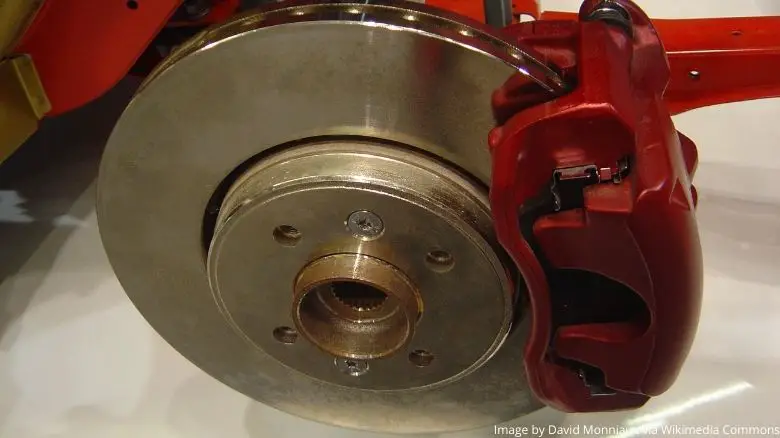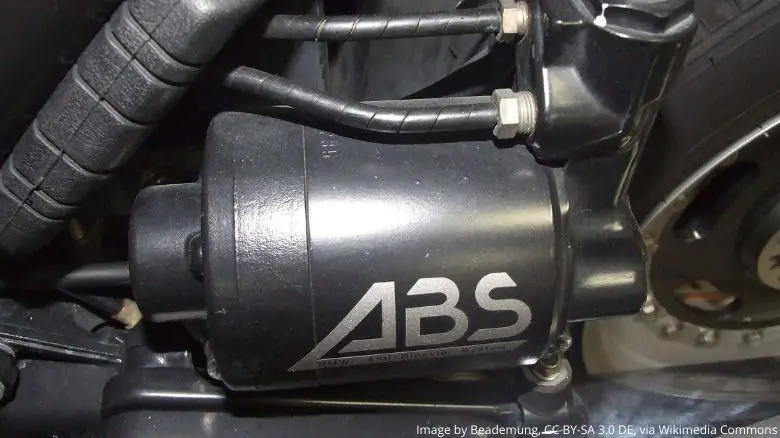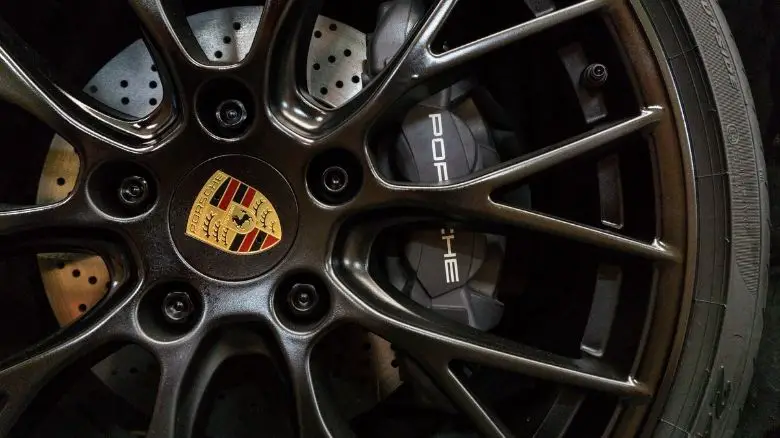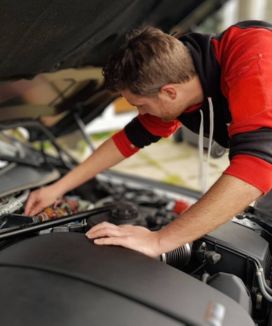Do You Need ABS Brakes? (And Is It Safe to Drive Without Them?)
Table of Contents
ABS, or Anti-Lock Braking Systems, are fitted as standard equipment to most cars across the world nowadays, but that wasn’t always the case.
Most drivers trust their brakes to get them out of sticky situations, so do you need ABS brakes?
It’s good to have ABS brakes as it makes your car safer, but you don’t necessarily need them. Your brakes will still function without anti-lock brakes, and many older cars on the road today don’t have them. But if your car was fitted with ABS from new it’s a requirement that they’re working correctly to pass inspection.
So we know that ABS brakes are good to have, but what is the purpose of ABS brakes, and is it safe to drive without them?
What is the Purpose of ABS Brakes?
The purpose of ABS brakes is to prevent the car’s wheels from skidding during hard braking. They prevent the wheels from locking up, and make it easier for the driver to steer when braking firmly.
The system allows the wheels to keep turning while braking to reduce the chances of the car skidding.

When wheels lock-up under braking it’s a particularly dangerous situation as the driver loses all control of the vehicle’s direction, and it takes longer for the car to come to a halt.
ABS brakes also form part of the car’s electronic stability control system which helps the driver retain control of the vehicle in extreme situations. It’s something that’s fitted as standard to modern cars.
Will Brakes Still Work Without ABS?
Brakes do still work without ABS, but their safety and functionality under hard braking will be reduced. Extreme care needs to be taken without ABS brakes, particularly under challenging weather conditions.
The brakes will still function normally under regular conditions, but if you get into a situation where hard braking is required you will notice the difference.

Where you could previously slam your foot firmly on the brakes to bring the car to a halt, without ABS you will need to use more skill to avoid a lock-up.
You can drive without ABS, but you will need to apply pressure to the brake pedal rather than planting your foot into it.
If your ABS brakes have gone out and you need to stop suddenly, the wheels may start to lock-up. You’ll need to take your foot off the brakes and then reapply it so that the wheels can regain traction.
This is called ‘pumping the brakes’ and is a difficult skill to master in an emergency situation.
Is it Safe to Drive Without ABS?
Whether a car is safe to drive without ABS depends on the driver’s level of skill. In an emergency situation, younger drivers may not know how to safely reduce the speed of a non-ABS car. All modern cars are now fitted with anti-lock brakes, so drivers are no longer taught to ‘pump the brakes’ when the wheels lock-up.
Cars have come a long way in the last couple of decades. Drivers who grew up with non-ABS brakes will know the safest techniques to reduce speed if the wheels lock-up, and will be more suited to driving a car without anti-lock brakes today.

A car without ABS will also not have electronic stability control (ESC), another safety system that comes as standard in modern vehicles.
Is ABS a Legal Requirement?
ABS brakes are a legal requirement on all new cars, but drivers of older cars that weren’t originally fitted with anti-lock brakes are not required to retrofit them.
ABS brakes are only required by law on new vehicles; manufacturers must fit anti-lock brakes to be able to sell their cars in the USA, EU, UK, and many other regions.
Older cars that weren’t fitted with ABS from the factory are exempt, and there are plenty of people still driving such vehicles on the road today.
Is Driving Without ABS Illegal?
Driving without ABS is not technically illegal, but if your anti-lock braking system has failed you may not be able to pass your country’s annual roadworthiness inspection without repairing it.
In most countries it’s not against the law to drive if your ABS fails as the brakes will continue working as they would if ABS was never fitted.
Be sure to get the issue fixed as soon as possible, and definitely before you send your car in for its annual inspection.
The majority of countries require safety systems that were fitted from new to be in full working order to pass their inspections.
If you were to get into an accident and you had knowingly been driving without the ABS functioning, it’s likely your insurance company would be unwilling to pay out on your claim.
You could be landed with a significant bill if this were to happen.

Is it Legal to Disable ABS Brakes?
The legality of disabling ABS brakes is disputed. It could be argued that it would be criminally negligent if the ABS brakes were purposely disabled and the car was involved in a crash.
Car manufacturers make it difficult (sometimes impossible) for owners to disable the ABS, but it can be possible.
Disabling any safety system is a controversial thing to consider doing, particularly one that’s going to help you stop a car safely in an emergency situation.
Some car owners choose to disable their anti-lock brakes temporarily to diagnose issues, but we’d advise using caution and not taking your car onto the public roads if it is disabled.
Not only would your insurance company have something to say about it if you were to be involved in a crash, but the police would also be interested in why you’d purposely disabled a system designed to save lives.
There are stories of police forces pushing for prosecutions in this scenario.
When did ABS Brakes Become Mandatory?
ABS brakes have been mandatory on all new cars sold in the USA since September 1 2013. The EU mandated anti-lock brake technology far earlier than than the USA, back in 2004.
Despite ESC being required in all new cars since 2007, it took the USA quite some time to catch up with their European counterparts when it came to ABS.

Car manufacturers have been building their cars with ABS for a long time, however, even before it was mandated.
Its use has been widespread since the nineties as the safety benefits for drivers, passengers, and pedestrians are clear for all to see.
Are ABS Brakes Necessary?
ABS brakes are necessary in modern cars. Having ABS brakes make the car much safer, and they greatly reduce the chance of being involved in a serious crash. Anti-lock brakes are one of the best safety systems introduced to vehicles in recent decades, and have saved many lives.
Brakes are one of the most crucial elements of vehicle safety, and any system that can make them more effective is very much welcomed.
If you’re driving a car that doesn’t have ABS, it will be more difficult to control your vehicle in an emergency. Braking technique can always be practiced under normal conditions, but due care needs to be taken when driving without ABS brakes.
Whether you really need ABS will depend on how skilled you are as a driver. For those who know how to bring a non-ABS car safely to a stop, the standard braking system should be enough in most normal driving conditions.
But for those who have only driven cars with ABS brakes in the past, it’s wise to stick with driving cars fitted with the modern anti-lock braking systems that they’re used to.
ABOUT THE AUTHOR
Adam Chinn writes about the intersecting worlds of classic cars, driving pleasure, and smart investment strategies. Starting his journey at 26, he’s proven that one doesn’t need to be wealthy to begin investing in classic cars.
Adam’s insights have been recognized on platforms such as MoneyInc, Swagger Magazine, and Top Speed.




3 thoughts on “Do You Need ABS Brakes? (And Is It Safe to Drive Without Them?)”
2014 GMC Terrain. Unable to afford repair so my ABS on right rear is disconnected.
Does my all wheel drive still function properly?
I really like your article
Thank you
Alan
I hate ABS. They are always having problems. THe customer is always stuck with the ABS bill, which is in the thousands. Toyota has the worst ABS problems on their vehicles. They always stick the bill on the consumer. Toyota always wants to replace the hub steering assembly. The whole works. I hate the Toyota company. I will never buy another Toyota again.
Toyota vehicles are good vehicles. It is their ABS that is 90% of the problem. If all they had to do was replace ABS harness, that would be great. There is a harness for each wheel. That is to easy. NO! they want to replace everything on each wheel. Costing 1500 to 2000 dollars per wheel. Your ABS goes bad. Do not go to the dealer for it. They will screw U over.